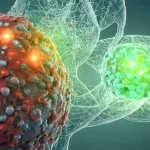The outrageous myth that cholesterol causes heart disease has turned many people away from enjoying the daily delight of eggs. However, it’s time to crack open the truth: there are absolutely no proven scientific studies linking eggs to heart disease.
In fact, eggs are not just a delicious breakfast option but also one of the most nutrient-dense foods in the world. Remarkably, one egg can provide you with a bounty of 13 essential nutrients, and contrary to popular belief, most of these nutritional powerhouses are concentrated in the yolk.
But that’s just the beginning of the incredible story of eggs and their health benefits. Let’s delve deeper into the world of eggs, separating fact from fiction, to unveil the many secrets hidden within this humble yet extraordinary food source.
The Nutritional Powerhouse of Eggs
Eggs contain a wide range of nutrients that make them one of the world’s top superfoods. One large boiled egg contains:
Every single vitamin except for vitamin C
All essential minerals
6 g of protein
5 g of healthy fats
Antioxidants
Choline
Choline: The Super Nutrient Found in Eggs
One egg contains around 100 milligrams of choline, a vital nutrient that works to support the membranes of cells, making them function properly. Choline is important for normal liver function and nutrient transportation in the body.
Eggs are full of vitamins. One egg contains every vitamin except vitamin C. Yolks contain incredibly high amounts of vitamin A, D, E, K, B1, B2, B5, B6, B9, and B12. In fact, consuming two eggs per day can give you 10–30% of the daily recommended amount of most of these vitamins.
Debunking the Cholesterol Myth
Our bodies absolutely require cholesterol to function. Cholesterol plays a vital role in cell structure, hormone production, Vitamin D production, and much more. In fact, about 80% of our cholesterol is actually made by our bodies, and only around 20% is derived from what we eat.
Unfortunately, the current myths about eggs are due to the fact that eggs are the most cholesterol-rich food. One egg yolk has around 237 mg of cholesterol. But despite this, eating eggs does not increase your cholesterol levels. It’s the high-carbohydrate (not cholesterol) diet that is likely the primary factor for heart disease.
One study following half a million Chinese people discovered that those who ate eggs daily had a 14% lower risk of major cardiac events, a 12% lower risk of ischemic heart disease, and an 18% lower risk of CVD death.
Health Benefits of Eggs
Brain Health: Eggs contain vitamins and minerals that are necessary for the development and functioning of the nervous system and the brain. Eggs are loaded with choline that helps improve memory, mood, and cognitive function.
Immunity Support: Eggs contain vitamin A, vitamin B-12, and selenium, which are all essential for our immune system.
Protein Content: About 13% of an egg is protein. The protein in eggs helps to maintain and repair body tissues, including muscle.
Healthy Pregnancy: As you know, Cholesterol is the precursor to all steroidal hormones in the body. Estrogen, progesterone, and other hormones necessary for fertility start out as a cholesterol molecule. Additionally, folate in eggs helps support the development of a baby and protect from any birth defects.
Healthy Eyes: Lutein and zeaxanthin are two antioxidants in the egg yolk that can have a protective effect on your eyes.
Exploring the Heart-Healthy Benefits of Eggs
Contrary to the age-old myth that cholesterol-rich foods, such as eggs, spell trouble for your heart, an abundance of scientific research has dispelled this notion. Studies consistently reveal no significant link between egg consumption and heart disease. In fact, emerging evidence suggests that eggs can be a valuable component of a heart-healthy diet, offering a plethora of health advantages.
These nutrient-packed orbs provide essential nutrients like high-quality protein, antioxidants, and heart-friendly vitamins and minerals. Additionally, eggs are a rich source of omega-3 fatty acids, which are known to support cardiovascular health by reducing inflammation and improving cholesterol profiles. So, it’s time to crack the myth wide open and embrace the heart-healthy potential of eggs as a delicious and nutritious dietary choice.
Eggs and Weight Management
When it comes to managing your weight, eggs can be your trusty ally. These little powerhouses aren’t just delicious; they can also help you control your appetite and calorie intake.
You see, eggs have a unique knack for making you feel full and satisfied, which means you’re less likely to snack on extra calories later in the day. And don’t just take our word for it research has your back!
A study in the Journal of the American College of Nutrition discovered that a breakfast rich in protein, like one built around eggs, could be a helpful tool for weight loss. So, if you’re looking for a tasty and practical way to manage your weight, consider adding eggs to your daily menu—they just might become your new favorite dietary sidekick!
Eggs and Brain Health
Eggs aren’t just a treat for your taste buds. They can also work wonders for your brain. The key player in this brain-boosting game is choline, a nutrient found abundantly in eggs. Choline is essential for the production of acetylcholine, a neurotransmitter that plays a crucial role in memory, mood regulation, and overall cognitive function.
Studies have shown that choline intake is linked to improved cognitive performance and memory enhancement. In fact, different studies highlights the importance of choline-rich diets in promoting cognitive development and memory retention, particularly in infants and older adults.
Additionally, eggs are a source of other brain-boosting nutrients like vitamins B6 and B12, which are vital for maintaining healthy brain function and reducing the risk of cognitive decline as we age. The antioxidants lutein and zeaxanthin found in eggs also contribute to brain health by protecting against oxidative stress and inflammation, both of which can have a detrimental impact on cognitive function.
Eggs for Eye Health
Your eyes deserve the best, and eggs can contribute to their well-being. Eggs contain essential nutrients like lutein and zeaxanthin, two powerful antioxidants that play a pivotal role in maintaining good vision.
These compounds help protect your eyes from harmful high-energy light waves, such as ultraviolet rays, and may reduce the risk of age-related macular degeneration and cataracts. Moreover, eggs are a source of vitamin A, which is crucial for night vision and overall eye health. By including eggs in your diet, you can give your eyes the nourishment they need to see the world more clearly and vividly.
Tips for Choosing the Right Eggs
When purchasing eggs, it’s important to consider their quality. Here are a few tips to help you choose the right eggs:
Opt for organic, pasture-raised eggs whenever possible. Studies have found that commercially raised eggs may be up to 19 times higher in pro-inflammatory omega-6 fatty acids, potentially impacting overall health.
Look for eggs that come from chickens raised in a free-range environment, allowing them access to outdoor areas and a varied diet.
Consider purchasing eggs from local farmers or trusted sources that prioritize the welfare of the hens and the nutritional quality of the eggs.
Choosing high-quality eggs ensures that you’re getting the maximum nutritional benefits and supporting sustainable and ethical farming practices.
It’s time to debunk the myth that eggs are harmful to heart health. Scientific studies have consistently shown that consuming eggs does not significantly raise cholesterol levels or increase the risk of heart disease.
On the contrary, eggs are a nutrient-dense food that offers numerous health benefits, including supporting brain health, boosting immunity, and providing essential nutrients like protein. To fully embrace the benefits of eggs, focus on choosing high-quality, pasture-raised eggs and enjoy them as part of a well-balanced diet. So don’t be afraid to crack open an egg and enjoy the incredible nutritional power it offers.
The post You’ve been Lied to About Eggs appeared first on Healthy Holistic Living.












